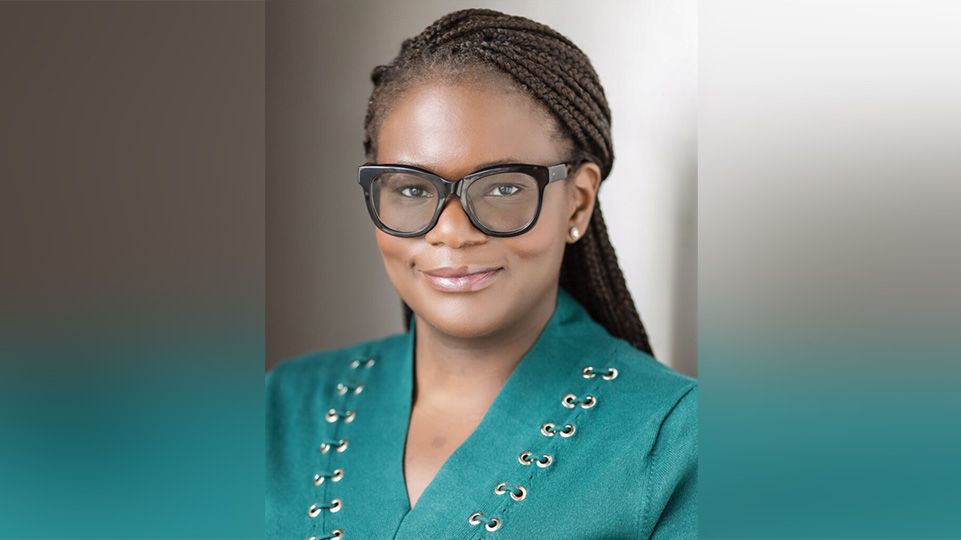Industry network Black Women in Asset Management (BWAM) is growing fast, having held its first annual conference last year and recently launched a cross-company mentorship scheme.
Here, the network’s CEO Jacqueline Taiwo sits down with ESG Clarity to talk about why she set up the group and what she hopes to see from the industry this year.
How was BWAM set up?
BWAM began in 2019 as a small networking group bringing together black women in London who work in the investment industry for dinners.
My background is private equity and after around 10 years I actually hadn’t come across any other black women working in the space.
In 2019 I attended a networking event and met another black woman – Mariam Akanbi – and realised, wow, OK, there must be more out here who were probably the only black woman at their organisations but really yearning for community among other folks who perhaps face some of the same challenges and barriers.
Mariam and I met for a coffee and that’s how the community was born. We started hosting dinners and, by the end of that year, we had an email list of around 200 women. That’s when we decided to formalise our mission, which is really about helping more black women thrive by helping them to advance in the industry to senior leadership, and really helping them to stay because we lose a lot of women in the pipeline.
It’s really, really important that more people see that there are some really talented black women in this field, and that we provide additional visibility for them and start to shift the narrative of what it looks like to be successful within this industry.
With a lot of signups in a short space of time, it seems like people were really looking for a network like this.
After George Floyd’s murder, there definitely was more interest from the institutional side. But it started to grow before that because among black women we are servicing a need. There are women’s networks but having attended and been a part of different women’s networks, you walk into those spaces and you don’t see women of colour. So this was quite unique in that you walked into a room and saw yourself represented. Even today, three years later, we host events and still that’s the feedback we get: “I’ve never been in a room like this before”, “I’ve never, met another black women in the industry”. That’s a really powerful thing that we’re doing, which is why I think we’ve grown a lot.
We have 1,500 women in the network globally, but it’s the tip of the iceberg. We’re looking to build in the US and I think we can get to 3,000.
What were your main takeaways from your inaugural conference last year?
That was the biggest event we’ve done so far. The theme was ‘go far together’ based on the African proverb, ‘if you want to go fast, go alone, if you want to go far, go together’; I really wanted to drive home the message through the panels that we are not alone in this journey.
The panels all had an ESG lens, but the most powerful message that came through, just by virtue of having a panel of all black portfolio managers, was we exist, we are here, we belong. This industry is for us, and we can have spaces where we can share the stage and share the panels and talk about our expertise and our investment strategies.
What events do you have planned this year?
We’re having our conference again, it’ll be in New York this year on 3 November. And we have our 40 under 40 awards, with a gala in October during [UK] Black History Month. We have also launched a cross-company mentorship programme, for which we are pairing mid-level black women with senior industry leaders any race or gender.
What has been the response to your call to consider racial equity in investment decisions?
We put [a letter to the asset management industry] out in 2020 in response to police brutality in the US – a lot of people were asking me what they could do and how they could help, so the letter was a response to the questions I was getting.
Often the discussion centres on talent recruitment and retention, but I wanted to make clear that the real power the asset management industry yields is in its investment strategy, and its stewardship of trillions and trillions of dollars, in deciding where capital is allocated.
Am I aware of any asset management firm that read this letter and then made a change? No, but the reason why we keep it up on our website, and why that was the first recommendation, is because that’s where the real power shift can occur.
Just thinking about it is a start and we want to encourage investment firms to think about the disparate impacts, and opportunities, that could occur within their portfolios.
What would be your top recommendation to the industry this year to start thinking about?
I want folks to think more deeply about how they can invest in the black women within their organisations: mentorship, sponsorships, leadership, development, coaching, all the stuff that anyone needs, making sure that they are getting it equitably. Look internally and see who is there today who is not getting the resources that they should be getting.








